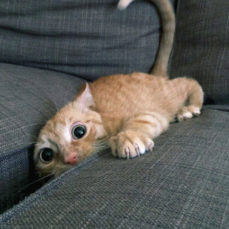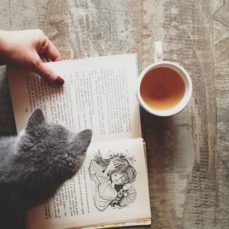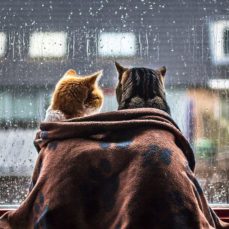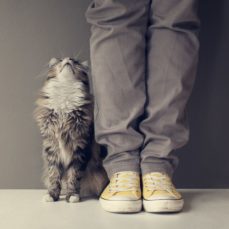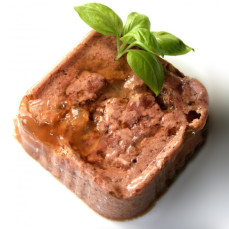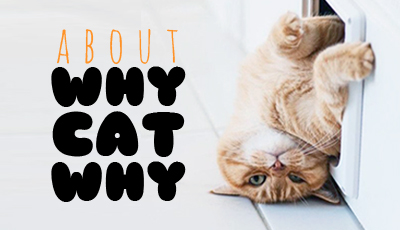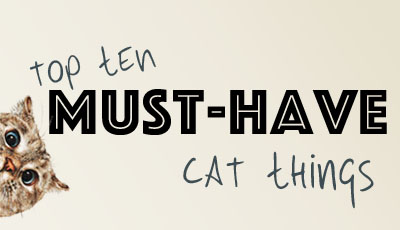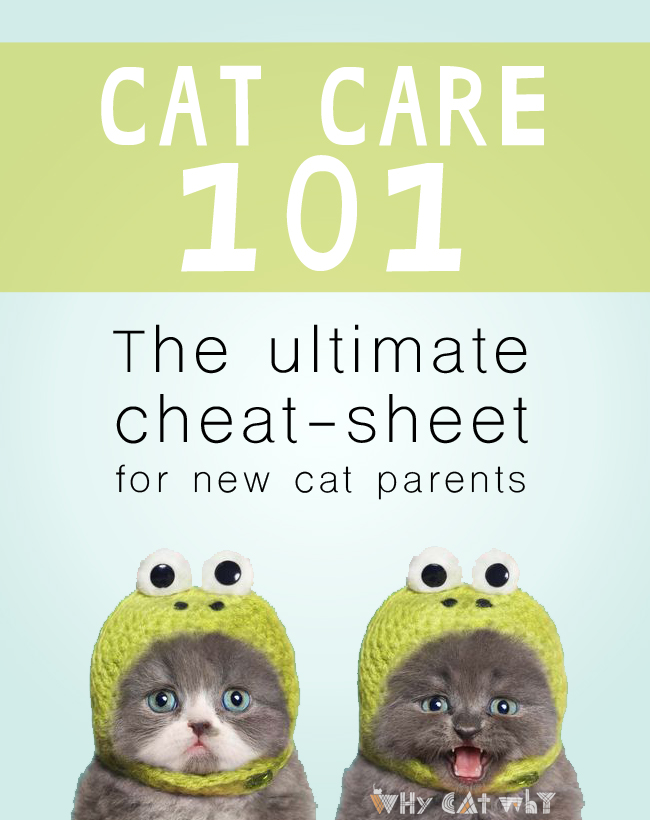Why do cats obsessively groom themselves and others?
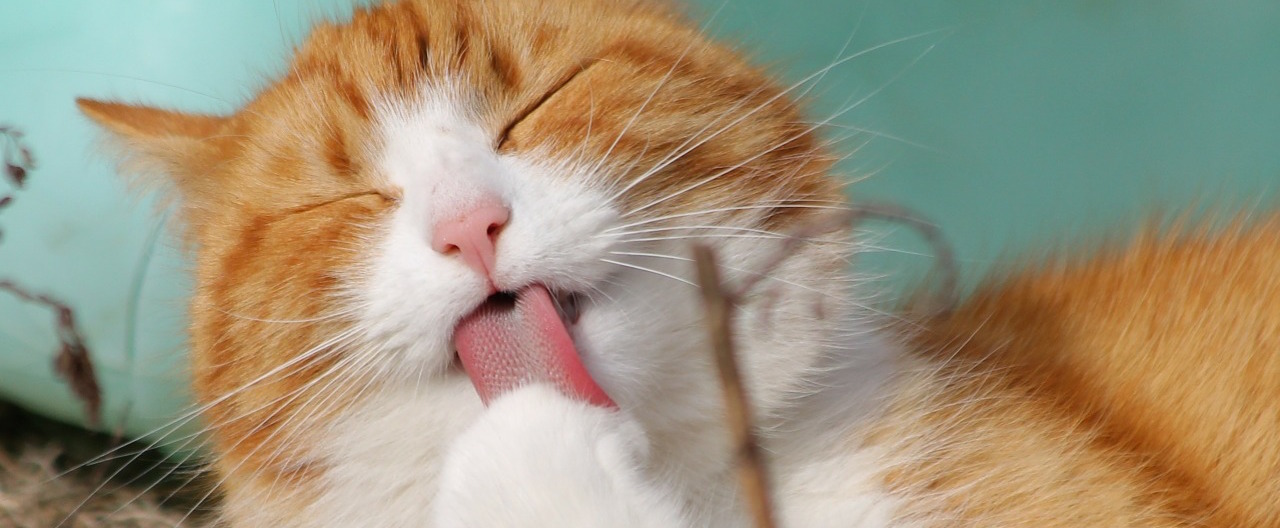
In so many ways, cats are the perfect fuzz-filled companions. They’re born potty trained, are naturally fastidious, and know how to take care of themselves. Also, they’re hilarious—often unintentionally so (which is the best kind of hilarious). But why are cats so hell bent on maintaining personal cleanliness, to the point where they seem to impose this fixation on everyone around them?
What could it be? Obsessive compulsiveness? Strict parents? Nervous tick? This might come as a surprise, but it’s actually a combination of all the above.
The secret life of cats
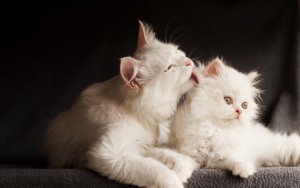 Yes, grooming keeps cats clean. It’s a habit instilled in them from kittenhood by their mothers, who gave them thorough washes from the moment they were born—partly to induce breathing and bowel movements, and partly to hide their scent from predators. But this instinct to stay clean and odor free is more than just a survival mechanism. It’s a coping mechanism.
Yes, grooming keeps cats clean. It’s a habit instilled in them from kittenhood by their mothers, who gave them thorough washes from the moment they were born—partly to induce breathing and bowel movements, and partly to hide their scent from predators. But this instinct to stay clean and odor free is more than just a survival mechanism. It’s a coping mechanism.
The more I read and learn about cats, the more I’m starting to think they’re basically the animal equivalent of paranoid neurotics, permanently cracked out on caffeine. After all, an extraordinary amount of their behaviors can be chalked up to self-preservation and self-soothing; as if to thwart some impending collapse of social order and sanity.
A fun activity for all occasions
When in doubt, cats groom.
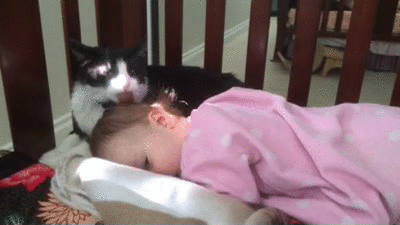
Cat grooms a baby
- Feeling happy and at peace with the world? Stretch out languidly and groom self (feels nice and keeps me clean).
- Feeling warm and affectionate? Nuzzle in close and groom someone else (feels nice and shows I care).
- Just got slapped by that douchebag Mr. Pickles? Glare at him and then groom self angrily (redirecting aggression).
- Really feel like spear tackling that asshole because he’s being irritating as shit? Chase him down and groom him angrily (also redirecting aggression).
^ This is a big reason why these borderline-combative allogrooming (new cat term alert!) sessions will often devolve into an all-out kitty scuffle: no one likes being subjected to a forceful, patronizing tongue bath from a peer. While the action of grooming may be inherently soothing, the intent behind these imposed grooming sessions is usually domineering and borne from annoyance.
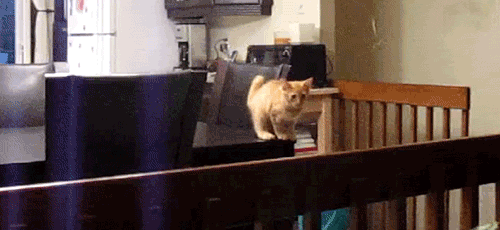
Oh, kitty. You do you.
One of my personal favorite reasons why cats groom themselves obsessively however, is embarrassment.
Ever seen your cat fall off a shelf, or miss an ill-timed jump, or get their affectionate advances rejected? They do a quick scan of the room to gauge whether anyone witnessed their shame, (or won’t even bother) and will immediately proceed to nonchalantly groom themselves, backs turned. It’s like grade school all over again—when faced with an embarrassing situation, our fingers go straight for our hair: tucking strands behind ears, fiddling with bangs, cheeks burning. So as hilarious as our cats are, try your best not to laugh directly in their faces. They know. And they’ll get you back later.
A social hierarchy?
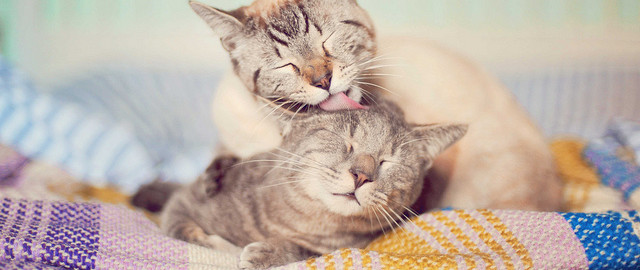
Many cat people attribute allogrooming behavior to a social hierarchy of “dominance” among cohabiting cats, much like dog packs—with dominant (alpha) cats generally doing the grooming, and submissive (beta) cats forced to tolerate it due to their lower social standing.
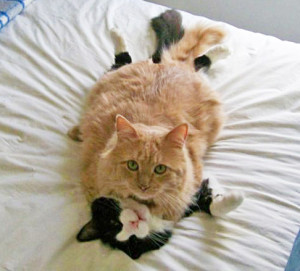 While there are many opposing schools of thought on the matter (really one of the most pressing matters of our time), I don’t personally think this is true.
While there are many opposing schools of thought on the matter (really one of the most pressing matters of our time), I don’t personally think this is true.
Apart from lions, the majority of wild cats are solitary and incredibly independent animals. What may look like a house cat “social hierarchy” to us is most likely just cats with more laid-back (or skittish) personalities letting cats with more demanding personalities have their way.
Too much of a good thing
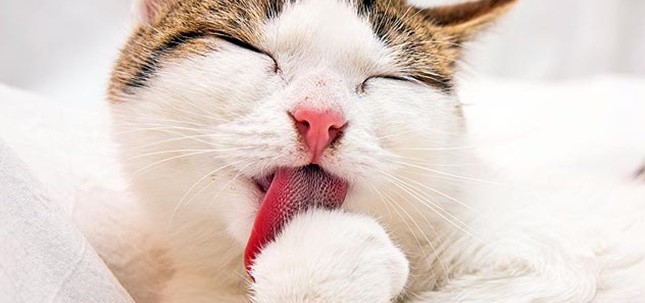
As beneficial and therapeutic as grooming is, compulsive, hair-loss inducing grooming is always bad. Usually, this is a result of stress. Has something major happened recently? It could be as earth-shattering as the death of a cat’s loved one, to something as trivial as you upending her world by rearranging the living room furniture (ya selfish bastard).
Take your cat to the vet. They’ll likely diagnose her with psychogenic alopecia, or possibly hyperthyroidism in cats older than 10. (Psychogenic alopecia simply means stress-induced over grooming, resulting in bald spots; hyperthyroidism is an endocrine condition in older cats that results in an overactive metabolism, but is very treatable).
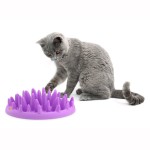
If it turns out that your fur loaf is just stressed and acting out, try to spend lots of quality time with her. Make sure her life is enriching and fulfilled, whether through lots of interactive play, puzzle feeders, or more vertical space.
An environment lacking in sufficient stimulation leads to boredom, which can cause weight gain, destructive behavior, and self mutilation (in this case, over-grooming). If you have multiple cats, observe them carefully to ensure that another cat in the house isn’t stressing out your over-grooming cat.
Using Feliway (a synthetic cat pheromone that replicates cats’ own calming pheromones) may also help.
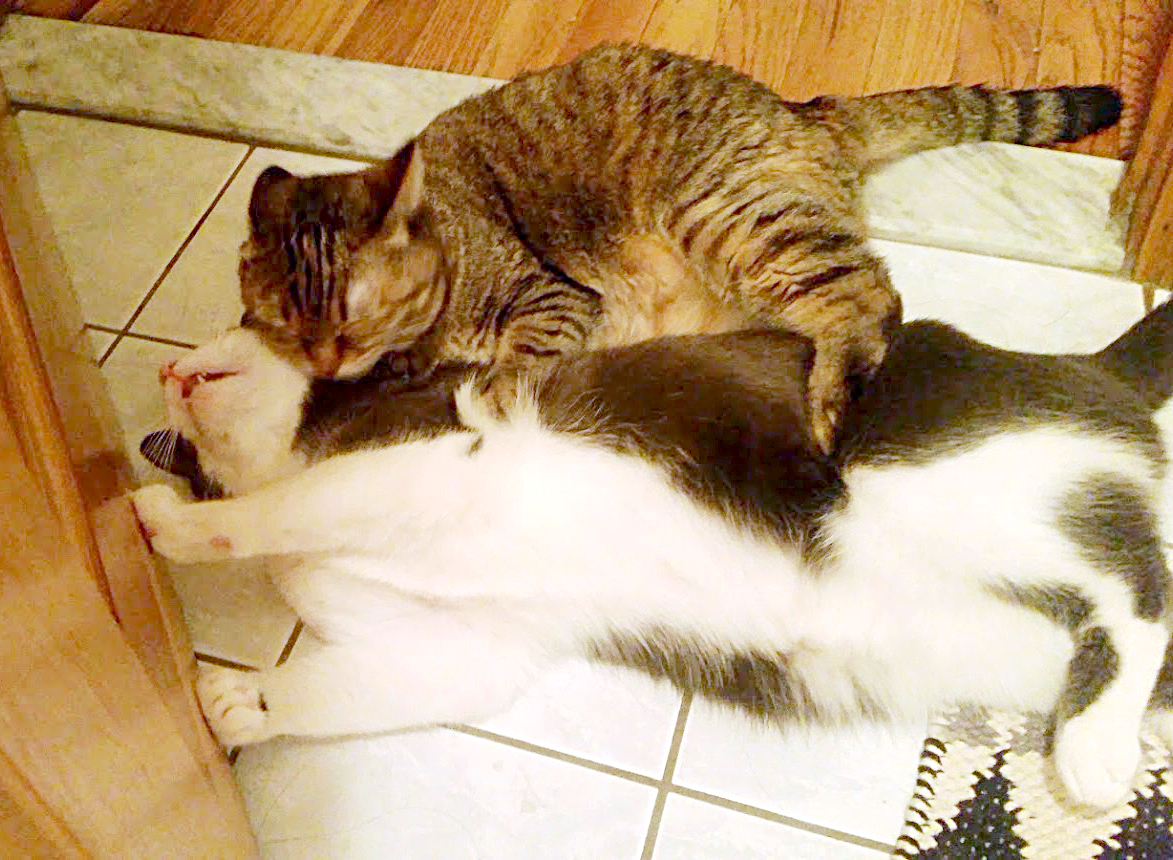
I wish Sita and Pip groomed each other lovingly. Instead there’s a lot of what appears to be… munching.
Have a burning cat question you’d like to see answered? Leave me a comment below!

